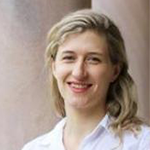Federalism and Multilevel Governance Program

About the Federalism and Multilevel Governance Program
Federal and multilevel governance has become a global phenomenon. Internal pressures and external forces have transformed a world system of independent sovereign states into a complex network of overlapping, interweaving and crosscutting jurisdictions and authorities. Many states are now part of regional organisations of states that exercise significant powers of coordination and governance (eg, the European Union). Many other states have divested authority internally to enable subnational territorial groups to exercise powers of autonomous self-government (eg Italy, Spain and the United Kingdom).
The 25 recognised federations of the world are the oldest and most prominent examples of multilevel governance. These countries account for 40% of the world’s population and territory. They include many of the largest and most powerful countries in the world (eg Brazil, Canada, Germany, India, Russia and the United States) as well as some of the most deeply divided and conflict-ridden (eg Ethiopia, Iraq, Nepal, Nigeria, Sudan). In addition, many large and complex countries are using systems of multilevel governance to facilitate governance over diverse societies and large populations (eg Bolivia, China, Colombia, France, Indonesia, Japan, Kenya, Peru and Ukraine).
Federal and multilevel constitutional structures are used in these countries and regions to combine principles of self-rule and shared rule, enabling cultural and regional minorities to govern themselves independently while also participating in the governance of the state or system of states as a whole. Such systems often involve competing sources of constituent authority and frequently give rise to complex interrelationships between alternative concentrations of governing power. The social, economic, political, legal and religious factors unique to each locality raise intricate and sometimes intractable problems of conflict and coordination among contending authority structures. These problems challenge standard models of constitutional law and political philosophy that are premised on the idea of the sovereign nation-state.
Understanding the structure and dynamics of federal and multilevel constitutions is vital to informing their use in addressing problems of governance that arise in large, complex and divided societies and regions. Many attempts to institute federal or multilevel constitutional settlements have failed or are failing due to a disconnection between the formal constitution and the underlying society (eg Ethiopia, Nigeria, Iraq). Other federal and multilevel arrangements, despite their age and eminence, are showing signs of stress and dysfunction (eg Australia, Canada, the European Union, Germany and the United States).
The Federalism and Multilevel Governance Program has been established to undertake research on the theory and practice of federalism and multilevel governance and to contribute to the development of effective constitutional responses to problems of governance in complex societies and regions divided along ethnic, cultural, linguistic, religious, economic or political lines.
Aims of the program
The Federalism and Multilevel Governance Program will address a range of strategically selected issues through carefully designed research projects for which financial support will be sought from government and non-government funding agencies.
By bringing together academic staff, graduate students and undergraduate students in the Centre for Public International and Comparative Law, the TC Beirne School of Law and the broader University of Queensland (UQ) community, the program will:
- contribute to UQ’s research profile by supporting the production of high-quality scholarship in an internationally significant field of inquiry;
- enrich the learning experience of students at UQ with an interest in federalism and multilevel governance through research-led teaching and research training;
- provide opportunities for graduate students to undertake supported research into complex and challenging federalism and multilevel governance issues;
- contribute to the development of government policy, including efforts to reform and strengthen the operation of Australia’s federal system.
Areas of research
The Federalism and Multilevel Governance Program will promote international, comparative and interdisciplinary research on a wide range of topics. These include:
- An Australian Research Council project ($414,000) examining the formation, interpretation and amendment of federal constitutions. This project is marshalling the skills of an international team of researchers to investigate 20 federal and multilevel constitutional systems across the world. The focus of the research will be the ‘constituent power’ underlying such systems. Project leaders: Professor Nicholas Aroney (UQ), Professor Stephen Tierney (Edinburgh) and Associate Professor George Duke (Deakin).
- An Austrian Science Fund project (€380,350) undertaken in collaboration with scholars at Salzburg University, developing potential reforms to financial arrangements within the European Union based on a comparative study of the fiscal systems of Australia, Austria, Belgium, Canada, Germany, Switzerland and the United States. Australian project leaders: Professor Nicholas Aroney (UQ), Professor Alan Fenna (Curtin) and Professor Neil Warren (UNSW).
- An International Association of Constitutional Law project examining the status and functioning of subnational constitutions in federations. The project recruited a team of international country experts to examine the subnational constitutions in 12 federations located in North and South America, Asia, Europe and Africa. Team leaders: Professor Patricia Popelier (Antwerp), Professor Nicholas Aroney (UQ) and Dr Giacomo Delledonne (Pisa).
- An Australian Federalism Reform project focused on addressing problems of constitutional governance within Australia’s federal system. This project has undertaken a critical examination of failed attempts to reform the Australian federal system over the last decade. Professor Nicholas Aroney (UQ) and Professor Alan Fenna (Curtin) are currently investigating the evolution of federal fiscal arrangements between Commonwealth, State and Territory governments.
- PhD projects on selected topics relating to federal and multilevel governance undertaken by Research Scholars within the Centre for Public, International and Comparative Law. These projects include detailed studies focused on the federal constitutions of Brazil, Ethiopia and Nigeria, as well as the constitutional relationship between the People’s Republic of China and Hong Kong.
- A UQ-funded Summer and Winter Scholars program which provides undergraduate students with the opportunity to undertake guided comparative research on particular federal and multilevel constitutional systems, contributing to the research output of the program as a whole.
Major Grants
Australian Research Council Discovery Grant (2022-2024): Constituent Power in Federal Systems (A$414,0500) (Nicholas Aroney, George Duke, Stephen Tierney).
Slatter Family Trust (2019-2020): Freedom of Speech: Does Australian Law Comply with its International Obligations? (A$105,245) (Nicholas Aroney, Paul Taylor).
Austrian Science Fund Grant (Austria) (2019-2021): Comparative Fiscal Federalism (€380,350) (led by Stefan Griller, University of Salzburg).
Australian Research Council Discovery Grant (2012-2014): A Federation of cultures? Innovative approaches to multicultural accommodation (A$181,500) (Nicholas Aroney, Patrick Parkinson).
Australian Research Council Future Fellowship (2011-2015): Reconceiving Australian federalism: fundamental values, comparative models and constitutional interpretation (A$879,187) (Nicholas Aroney).
PhD Scholarship Opportunity: Constituent Power in Federations
A three-year PhD scholarship ($28,854 per annum) is available to work as part of a major international project funded by the Australian Research Council. The project is undertaking a systematic and theoretical examination of the concept of ‘constituent power’ as it manifests in federations.
The idea of constituent power is fundamental to public law. The concept was first developed in unitary states. It consists of the notion that the constitution derives its authority or legitimacy from ‘the people’ (conceived in the singular). However, the nature of constituent power in federations has rarely been explored, noting that in such systems, there is a plurality of ‘peoples’ (at a ‘federal’ and a ‘state’ level). The PhD scholarship is available to a qualified candidate to undertake a detailed examination of the concept of constituent power as it manifests in a particular federal system.
More information about the scholarship, including contact details, is available here.
National and International Collaborators
- Olivier Beaud (Paris)
- Erin Delaney (Northwestern)
- Giacomo Delledonne (Pisa)
- Alan Fenna (Curtin)
- Stefan Griller (Salzburg)
- John Kincaid (Lafayette)
- Martin Loughlin (LSE)
- Peter Oliver (Ottawa)
- Francesco Palmero (Bolzano)
- Patricia Popelier (Antwerp)
- Cheryl Saunders (Melbourne)
International Association of Centers for Federal Studies
Associazione Osservatorio Sul Federalismo e i Processi Di Governo
Australian Centre for Federalism (ANU)
Canada Research Chair in Quebec and Canadian Studies (Montreal)
Center for Federal and Governance Studies
Center for State Constitutional Studies
Center for the Study of Federalism (CSF)
Centre for Comparative Constitutional Studies (Melbourne)
Centre for Federal Studies
Centre for Multilevel Federalism
Centre International de Formation Européenne
Centro Interuniversitario di Finanze Regionale e Locale
Deutsches Institut für Föderalismusforschung
Edinburgh Centre for Constitutional Law
Europäisches Zentrum für Föderalismusforschung
Forum of Federations (Ottawa)
German Research Institute for Public Administration (GRIP)
Institut d'Estudis de l’Autogovern
Institut für Föderalismus (Austria)
Institut für Föderalismus / Institut du Fédéralisme / Institute of Federalism
Institute for Comparative Federalism of Eurac Research, Bolzano/Bozen
Institute of Federalism (Fribourg, Switzerland)
Institute of Federalism of the National Academy of Law and Social Sciences of Córdoba
Institute of Governance and Social Research
Institute of Intergovernmental Relations
Institute of Legal Research
Istituto di Studi sui Sistemi Regionali Federali e sulle Autonomie ''Massimo Severo Giannini''
John Curtin Institute of Public Policy
Meyner Center for the Study of State & Local Government
Research Group on Federalism and Conflict Resolution
Research Group on Government and Law
UQ Scholars
Professor Nicholas Aroney
Federalism; multilevel governance; comparative constitutional law
International human rights; administrative law

Professor Emerita Jennifer Corrin
South-pacific legal systems; legal pluralism; customary law; human rights

Professor Ann Black
Asian legal systems; Islamic law; comparative law; legal pluralism

Dr Caitlin Goss
Interim constitutions; comparative constitutional law; public international law.

Dr Renato Costa
Federalism; constitutionalism; comparative constitutional law
Partner Investigators

Professor Stephen Tierney
Professor of Constitutional Theory
Edinburgh Law School

Associate Professor George Duke
Associate Professor in Philosophy
Deakin University


